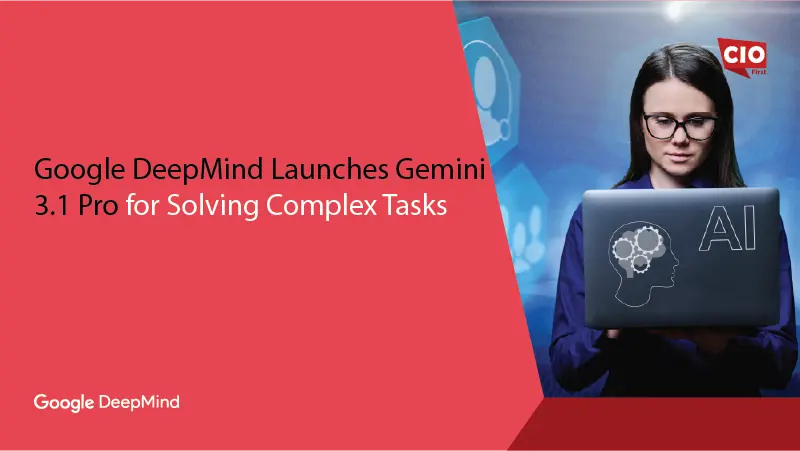“CFOs need to lead the charge in new technologies and be the change agents augmenting transformation throughout the company,” says Mayank Khandelwal, Executive Vice President & CFO, NEC Corporation India in an exclusive interview with EnterpriseTalk.
ET Bureau: Technology has not only been vital to keeping companies operating but the current crisis has accelerated the move toward digital business models. Has that focused CFO attention on tech issues? Do you believe that CFOs should be more involved in determining the technology agenda?
Mayank Khandelwal: We are in the midst of this Fourth Industrial Revolution, where digital technologies have emerged as a critical driver for any company’s success. While it has become necessary for world leaders to embrace digital transformation with open arms, digital returns on investment (ROIs) are equally essential.
In the past two years, CFOs across sectors have understood the importance of evaluating IT and its complexities. To create a robust framework for analyzing current and future IT capabilities, CFOs need to collaborate with CIOs to focus on — communication, governance, and assessment. These uncertain times demand a more in-depth collaboration of IT and finance departments respond quickly to disruption and ensure business continuity.
Moreover, CFOs need to pull different pieces of a puzzle together by collaborating with various functions like HR and be strategic partners to c-suite leadership by being more future-focused. To summarize, CFOs need to lead the charge in new technologies and be the change agents augmenting transformation throughout the company.
ET Bureau: It’s no longer enough for CFOs to act as financial stewards and keep financial reports safe. They must now also manage the data that is flowing through the company. How can CFOs use data analytics to increase their company’s resiliency and productivity?
Mayank Khandelwal: CFOs are expected to expedite data-driven decision-making through newer technologies in the ‘Next Normal.’ This enables agility, flexibility, and a continuous cycle of planning, modelling, and forecasting, which is essential to sustain business and beat challenges.
The first step is to automate finance processes like accounting operations, accounts receivable, accounts payable, payroll, tax management, FP&A, financial controlling, and reporting. By automating these processes, the finance team can focus their energies on driving strategy and change throughout the company. Then the second step is to pair financial and operational functions automation with data visualization tools to gain valuable real-time data, trending and Intelligent forecasting. Finally, organizations can make informed, tactical decisions and identify growth opportunities to become market leaders with data analytics.
While access to the organization’s data brings finance, HR, sales, and other teams onto the same page where everyone understands the goals, analysis of this data helps create a roadmap to strategize collaboratively and achieve a unified result.
ET Bureau: How is technology helping CFOs reshape the Financial Planning and Analysis (FP&A)? To boost FP&A, what methods or strategies should a CFO deploy first?
Mayank Khandelwal: The Financial Planning and Analysis (FP&A) function are poised to play a more strategic role across the enterprise. To identify the growth aspect and achieve clarity in the organization’s growth, CFOs need a long-term, multifaceted plan that will result in FP&A providing a wide range of data-driven insights. This will support operational decision-making and overall organizational strategy.
Based on the strategy devised by the FP&A team, CFOs can consider implementing three C’s framework —- capacity, capability, and collaboration. By providing teams with the right tools, CFOs can prioritize efficiency during challenging times when reporting has increased multifold. A customized strategy will drive financial discipline, financial vigour, operational excellence and visibility on different important matrices central to the organization.
ET Bureau: Many firms are looking at using technology to modernize their organizations; what practical impacts do you think these projects will have on accounting and finance functions?
Mayank Khandelwal: Pandemic-induced uncertainties exposed the inefficiencies of some finance functions that teams relied on for several years. These include manual processes and outdated systems that consumed a significant chunk of the team’s bandwidth before the COVID-19 crisis. CFOs understood the challenges with these manual processes in a remote work setup and the importance of leveraging technology to sustain business models.
For instance, with automation, organizations can mitigate risk by updating the systems and processes on which the business operates. This removes any scope of human error and provides information necessary for CEOs to make sound business decisions. Many organizations are also considering automation ramp-up, including robotic process automation (RPA).
Also Read: Significance of Emerging Technologies in Digital Transformation
ET Bureau: What are some quick wins that CFOs can achieve when reshaping a company and anchoring it more directly to data-driven insights?
Mayank Khandelwal: Through data-driven insights, CFOs can increase the frequency of their forecasting efforts and understand the impact in the long/short term. For instance, teams can accurately devise integrated forecasts by automating processes and studying reliable data insights from various divisions like sales, HR, and other costs. Specifically, in this VUCA (volatility, uncertainty, complexity, and ambiguity) world where change is the only constant, data-driven insights benefit organizations to understand patterns quickly.
Additionally, data insights help CFOs understand critical drivers for the organization, such as sales pipeline, customer demands, pricing pattern, and how the company can prepare itself to accommodate these changes.
ET Bureau: What does the future hold for IoT, AI, Machine Learning, and cloud computing in India? How do you think NEC and the industry will fare in the future?
Mayank Khandelwal: As per industry data, by 2023, one billion users are expected to have access to 5G technology. With speeds as high as 500Mbps to 1Gbps, 5G is all set to push the data transfer capabilities to exponential levels. It is also predicted that by 2035 there will be around US$12 trillion worth of 5G related services, including mission-critical services, enhanced mobile broadband and massive IoT advancements. Furthermore, 5G can facilitate faster adoption and implementation of other established and emerging technologies, including the internet of things, artificial intelligence, advanced data analytics, robotic process automation, robotics, cloud computing, virtual and augmented reality, 3D printing and drones. Hence, India is going to witness a transformative impact on industries such as retail, healthcare, education, transportation and entertainment in this decade.
NEC, as one of the leaders in the communication and telecom domain, has made an early investment in the 5G space, through a dedicated 5G Center of Excellence in Chennai. We have been recognized as a Visionary in the February 2021 Gartner Magic Quadrant for 5G Network Infrastructure for Communications Service Providers. As one of the first companies in the world to have deployed O-RAN technology, we are the undisputed market leader and are raring to lead from the front for India’s connectivity revolution.
[vc_column] [vc_tta_tour][vc_column_text]
 Mayank’s journey with NEC Corporation India began in June 2020 amidst the pandemic, as he took up the mantle to spearhead the diverse finance function of the technology behemoth in India. As a strategic advisor to the business units, Mayank is responsible for enabling teams at NEC with tools, data, and processes to achieve the desired targets.
Mayank’s journey with NEC Corporation India began in June 2020 amidst the pandemic, as he took up the mantle to spearhead the diverse finance function of the technology behemoth in India. As a strategic advisor to the business units, Mayank is responsible for enabling teams at NEC with tools, data, and processes to achieve the desired targets.
[/vc_column_text][/vc_tta_tour][/vc_column]




























